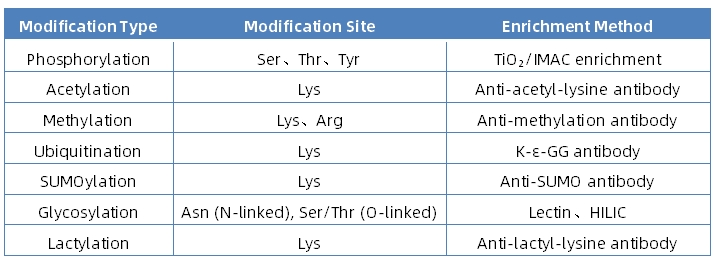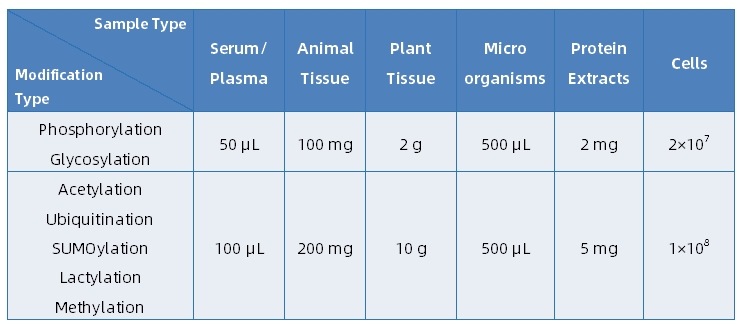Protein PTM Site Identification Service
Based on a high-resolution LC-MS/MS mass spectrometry platform and advanced liquid separation system, MtoZ Biolabs has launched the protein PTM site identification service which can systematically identify and quantify post-translational modification sites in protein samples. This service combines specific modification enrichment methods with optimized experimental workflows to precisely locate the amino acid residues where modifications occur and to analyze their distribution characteristics and modification levels. The final output includes precise identification results of modification sites, quantitative difference information, and functional annotation data, providing reliable support for researchers in protein function studies, signal pathway analysis, and cellular regulatory mechanism exploration.
Overview
Post-translational modifications (PTMs) refer to the changes that occur on specific amino acid residues of proteins after translation through chemical modifications or enzymatic reactions, and they are important mechanisms for regulating protein function and cellular activities. Protein post-translational modification analysis not only reveals the role of modifications in protein structure, stability, and molecular interactions but also provides reliable data support for signal pathway analysis, epigenetics research, and cellular function regulation. It is widely applied in molecular mechanism research, functional protein analysis, and biomarker screening, offering important tools for a deeper understanding of complex biological networks.
Services at MtoZ Biolabs
1. Target Protein PTM Site Identification
MtoZ Biolabs can perform precise PTM site analysis for designated target proteins, identifying the modification types and their locations, and evaluating site changes under different treatment conditions. This analysis helps clarify the impact of specific modifications on protein structure, activity, or regulatory function.
2. Proteomics PTM Site Identification
By combining enrichment strategies with high-resolution mass spectrometry, MtoZ Biolabs can systematically localize multiple PTM sites across the entire proteome and obtain global modification distribution information. This service helps elucidate complex regulatory networks, investigate dynamic modification patterns, and support in-depth mechanism studies.
Features of Common Post-Translation Modification Types

Analysis Workflow
1. Sample Preparation
Perform protein extraction from collected samples to ensure sample quality and uniformity.
2. Protein Digestion
Use proteases and other enzymes to cleave proteins into peptides, providing the basis for subsequent modification site detection.
3. Modified Peptide Enrichment
Apply specific enrichment methods to selectively enrich target modified peptides.
4. Mass Spectrometry Detection
Rely on a high-resolution LC-MS/MS platform combined with liquid separation to accurately identify and quantify modified peptides.
5. Data Analysis
Use database comparison and bioinformatics tools to output modification site distribution, modification levels, and functional annotations, generating a complete modification map.

Figure 1. The Workflow of Protein PTM Site Identification.
Sample Submission Suggestions
1. Sample Type and Sample Amount

Note: If you have other sample types or modification submission requirements, please consult the technical staff of MtoZ Biolabs.
2. Sample Storage
It is recommended to store samples at -80°C for long-term preservation, avoiding repeated freeze-thaw cycles to prevent protein degradation or modification loss.
3. Sample Transportation
Samples should be transported on dry ice or under a cold chain, using sealed containers for protection to ensure stability and integrity during transportation.
Service Advantages
1. High-Resolution Detection
Relying on an advanced LC-MS/MS platform, low-abundance modification sites can be accurately captured even in complex samples.
2. Multi-Modification Coverage
Supports the identification and quantification of multiple post-translational modification sites, providing comprehensive and systematic results.
3. Professional Team Support
Experiments and data analysis are carried out by experts with extensive experience in mass spectrometry and PTM research to ensure reliable results.
4. One-Stop Workflow
Provides a one-stop workflow from sample preparation and modification detection to data analysis, helping researchers efficiently obtain data.
5. Customized Solutions
Experimental schemes can be flexibly customized according to research objectives and sample characteristics to meet different research needs.
Applications
1. Signal Pathway Research
The protein PTM site identification service can be used to reveal the regulatory mechanisms of proteins in key signal pathways and support the analysis of cellular signaling networks.
2. Cell Function Analysis
By monitoring the dynamic changes of PTM sites under different conditions, it clarifies their roles in the cell cycle, metabolic regulation, and stress response.
3. Epigenetics Research
The protein PTM site identification service can be applied to study PTM modifications of histones and related proteins, helping to understand gene expression and chromatin structure regulation.
4. Biomarker Discovery
Through systematic PTM site detection, potential functional or state-related biomarkers can be screened, providing reference for subsequent studies.
Deliverables
1. Comprehensive Experimental Details
2. Materials, Instruments, and Methods
3. Modification Site Identification and Quantitative Analysis
4. Functional Annotation and Bioinformatics Analysis
5. Raw Data Files








